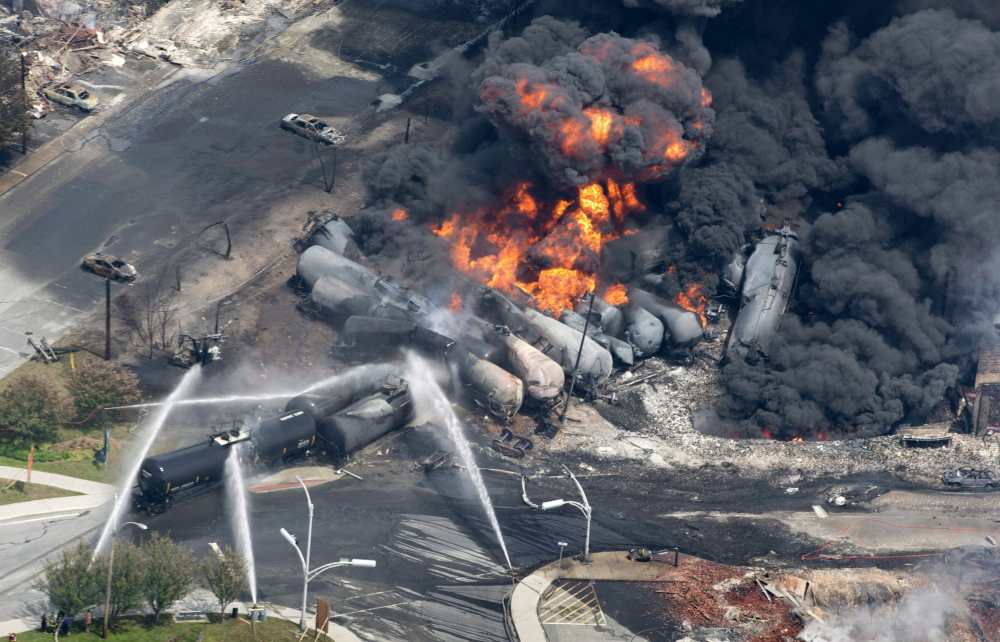It’s been more than two years since 47 people died in explosions caused by the derailment of crude oil-laden rail cars in a small Quebec town. In the wake of the Lac-Megantic tragedy, the public has justifiably demanded to know more about oil-by-rail shipments. But a new state regulation keeps this information secret, making it tough for Mainers to assess the risk to their communities and taking the state in the wrong direction when it comes to government transparency.
Since the law in question – which bars public disclosure of items transported by a railroad – took effect in October, Maine agencies have stopped revealing when, where or how much oil is being transported by rail through the state.
The bill’s sponsor, then-state Rep. Mike Shaw, D-Standish, said that exempting rail-shipment data from Maine’s right-to-know laws would encourage railroads to inform first responders of hazardous-material shipments. He told fellow legislators in April that his proposal addresses the companies’ business interest in not making this information public.
Nobody can argue that it’s critical for fire departments and emergency management personnel to know when and where oil is being moved through Maine. Several dozen Maine firefighters were among the 1,000 responders who helped bring the Lac-Megantic blaze under control – which took 30 hours and a million gallons of water, according to Rangeley fire Chief Tim Pellerin.
Granted, not every disaster is of this scale; still, smaller derailments also pose safety risks for which first responders should have the chance to prepare. And so should the public – despite the arguments made for keeping the lid on this information.
The rail companies and the Association of American Railroads cite the threat of terrorist attack as a reason not to divulge details of rail cargo. But as a 2014 report in the Portland Oregonian noted, none of the multiple oil-by-rail accidents in recent years was a result of terrorism.
Also undercutting the rail companies’ case for a confidentiality agreement, noted the Oregonian, is that the location of ships carrying oil on waterways is disclosed in real time and can be accessed online.
It’s reasonable to speculate that by keeping quiet about whether they’ve been shipping oil, the railroads’ real goal is to discourage protests. Regardless of their motivation, though, the companies should be communicating with everyone who would be affected if an oil shipment derailed. And it shouldn’t take a right-to-know exemption – or another Lac-Megantic – to get them to do so.
Send questions/comments to the editors.


